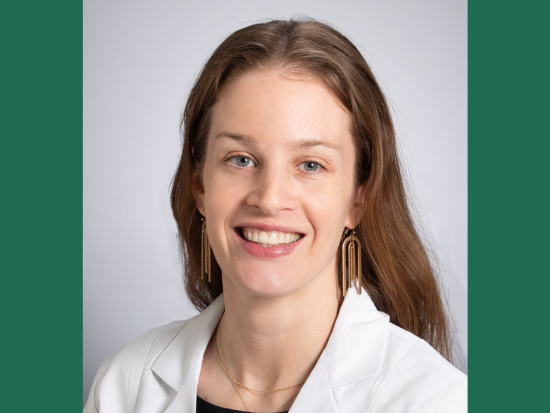 UAB Division of Surgical Oncology Assistant Professor Kimberly Kopecky, M.D., MSCI, has written an editorial featured in The Oncologist.
UAB Division of Surgical Oncology Assistant Professor Kimberly Kopecky, M.D., MSCI, has written an editorial featured in The Oncologist.
In the commentary, entitled “Renaming palliative cancer therapies: Call it what it is,” Dr. Kopecky recommends that cancer providers use the terminology non-curative therapy instead of palliative therapy in conversations with patients and families.
In the article, Dr. Kopecky cites literature noting that greater than 50% of patients receiving non-curative chemotherapy believed that this type of treatment was being given to cure their cancer. This suggests that the clinician’s use of the term palliative might be unintentionally obscuring the goal of treatment. This matters because patient perception of the goal of treatment impacts their decision-making.
“The goal is to ensure that patients are not only informed but that they understand what we mean when we use medical jargon,” says Dr. Kopecky. “We want to help patients make informed decisions, and using language that is accurate and clear can help us achieve that goal.”
As a provider, Dr. Kopecky advocates for patients with cancer and provides surgical care as an important complement to chemotherapy and clinical management strategies. She is a member of the UAB Center for Palliative and Supportive Care and her research focuses on complex decision making for patients facing treatment for gastrointestinal cancers.
Clinical Background & Training
Dr. Kopecky received her medical degree from Harvard Medical School and completed surgical training at Stanford Hospital and Clinics. Since joining UAB as a faculty member in 2024, she has utilized a patient-centered and multidisciplinary approach to care for her patients.
Dr. Kopecky specializes in surgical oncology and performs cytoreductive surgery with Hyperthermic Intraperitoneal Therapy (HIPEC) as well as other complex oncological procedures not readily available in the Southeast.
About The Oncologist
The Oncologist focuses on medical and practice issues of busy oncology, hematology, and radiation professionals to aid in better cancer patient care. It aims to translate the latest research developments into the best care for cancer patients.